October 12th To The Mountain Gorilla View Lodge (Page Two)

Did You Know? - Kigali, with a population of more than 1 million (2012), is the capital and largest city of Rwanda. It is situated near the geographic center of the nation. The city has been the economic, cultural, and transport hub of Rwanda since it became capital at independence in 1962. The main residence and offices of the President of Rwanda are located in the city, as are the government ministries.
The city is built in hilly country, sprawling across about four ridges and the valleys in between. The city center is located on one of these ridges, with the main government area on another. The tops of the ridges have an average elevation of 1,600 meters or 5,250 feet, while the valleys are around 1,300 meters or 4,270 feet. The bigger houses and office buildings tend to be on the tops of the ridges, while the poorer people live in the valleys. The city is ringed most of the way round by higher hills, with some suburban sprawl rising up these. The highest of these is Mt. Kigali, with an elevation of 1,850 meters or 6,070 feet above sea level.
It's 8:00 PM and time to rest after a long flight from Europe! The Kigali Serena Hotel is our destination this evening.
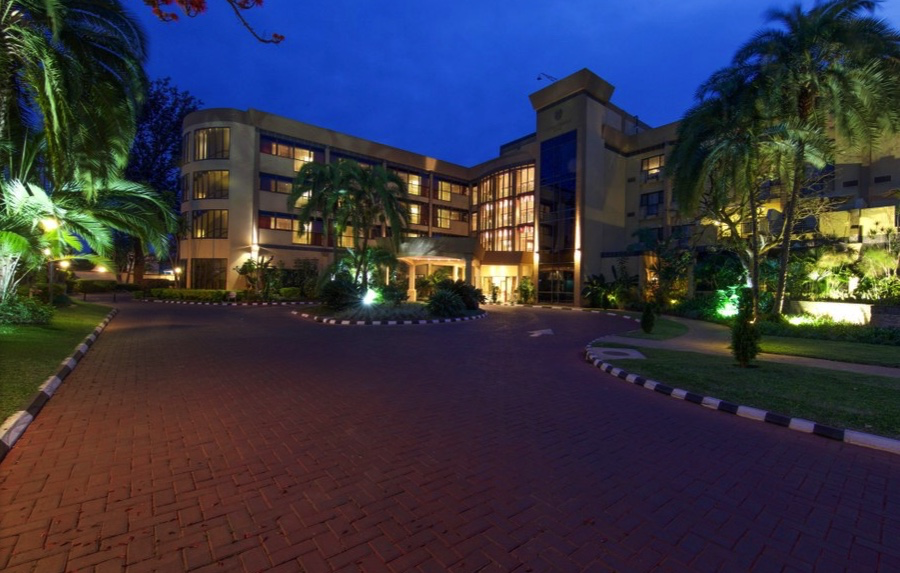
Time to recuperate after ten hours in the air!

Short drive from the airport to the hotel
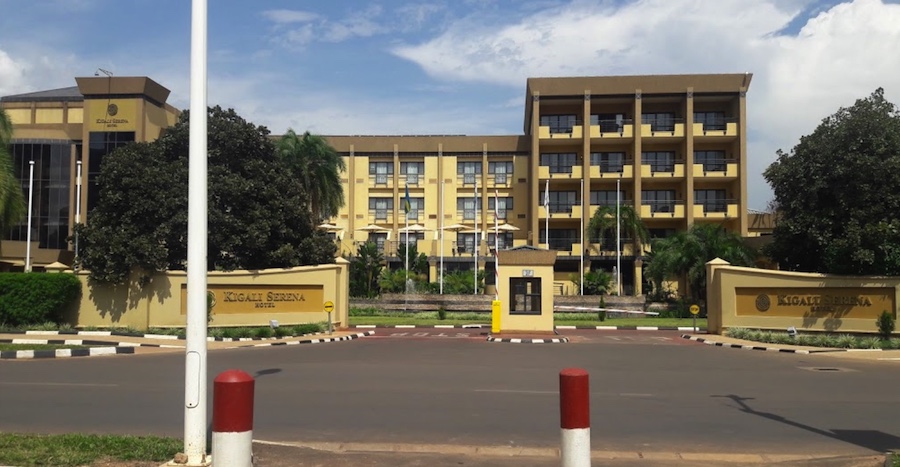
Kigali Serena Hotel in the morning sun

A quick look around the hotel and we are off and running
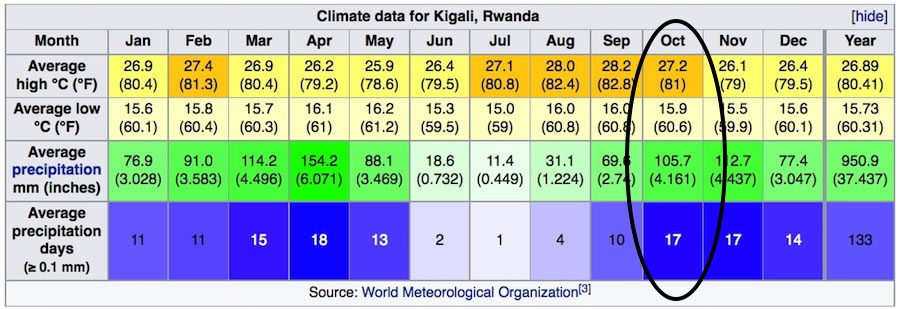
Still pretty warm even in October
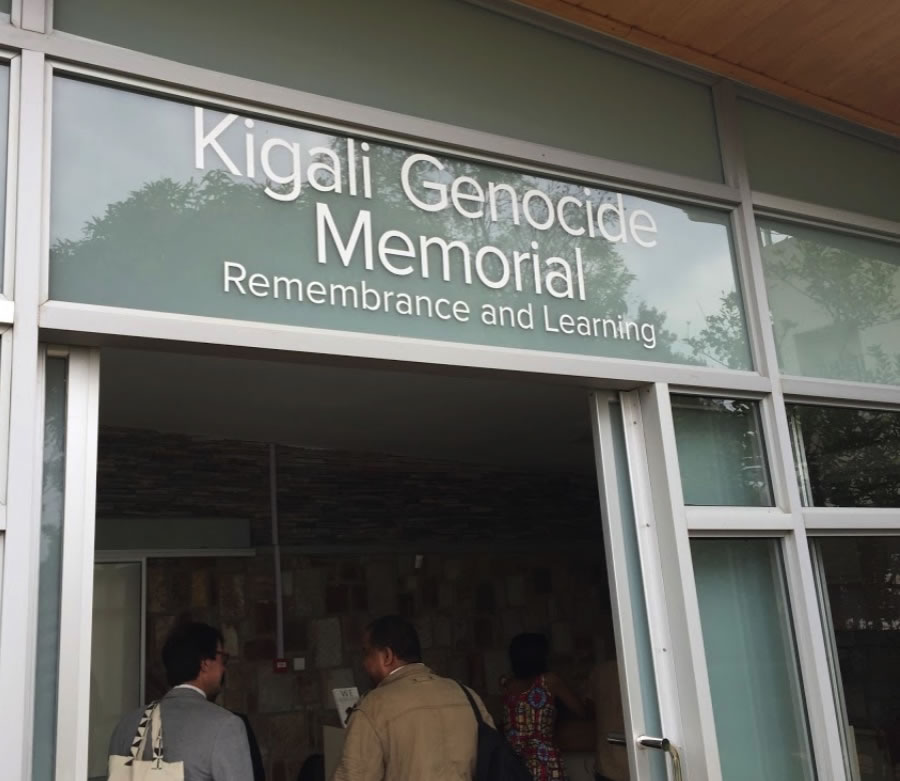
Did You Know? - The Kigali Genocide Memorial commemorates the 1994 genocide against the Tutsi. The remains of over 250,000 people are interred there. There is a visitor centre for students and those wishing to understand the events leading up to the events of 1994.
The Centre is a permanent memorial to those who fell victim to the genocide and serves as a place in which the bereaved could bury their family and friends. The Centre is managed and run by the Aegis Trust and the Kigali City Council.
In April 1994 reports of systematic mass murder within Rwanda began to filter out of Rwanda and circulate throughout the world. Sadly, little was done to halt the mass killing.
To outsiders the genocide was represented as tribal-based ethnic violence, with the Tutsis the victims and the Hutus as the perpetrators. Precisely how many people were actually murdered may never be known; estimates vary between 500,000 and over a million. The number of people killed is widely accepted as being somewhere close to 800,000.
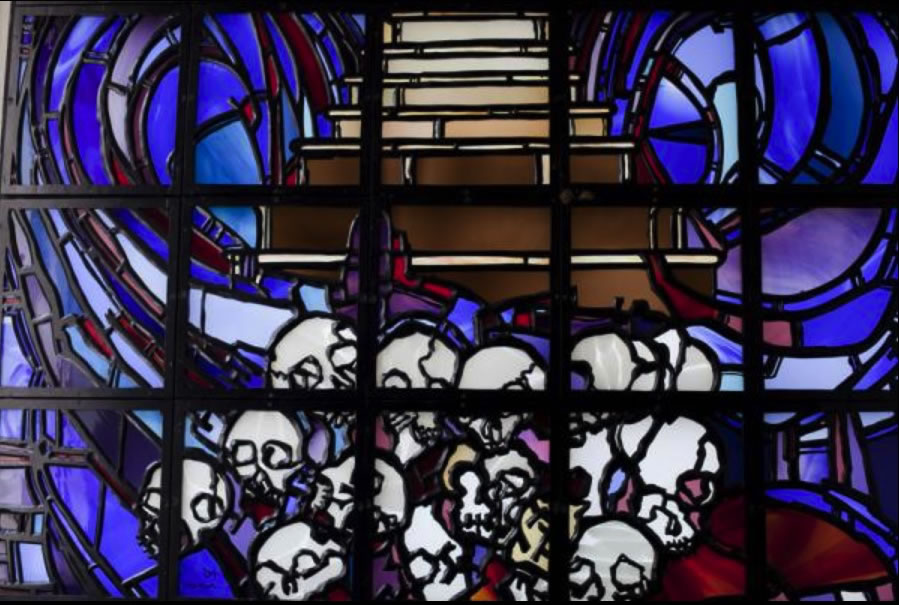
Horrible times
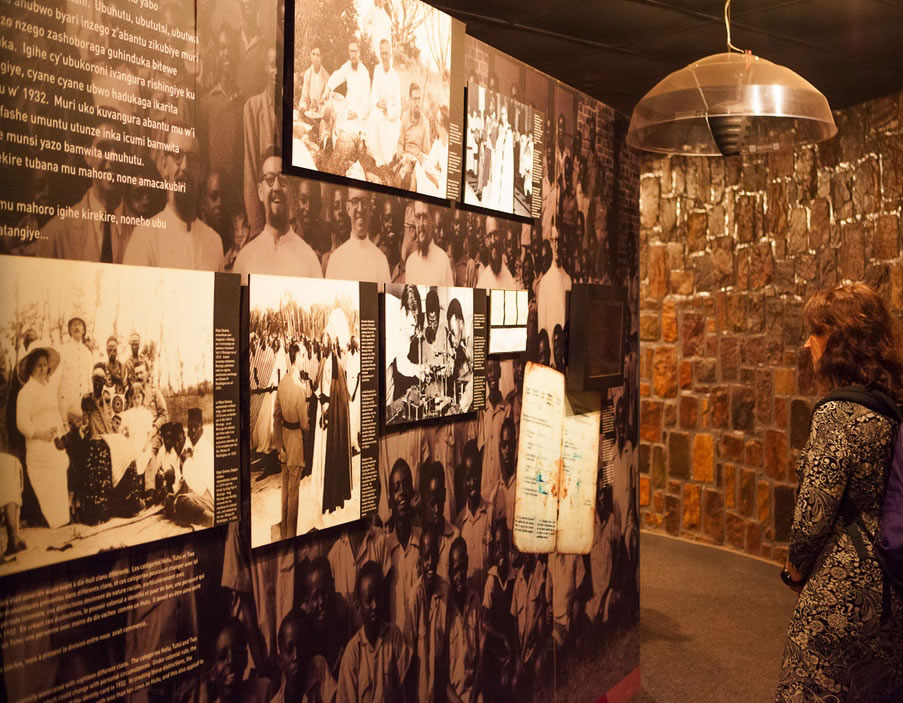
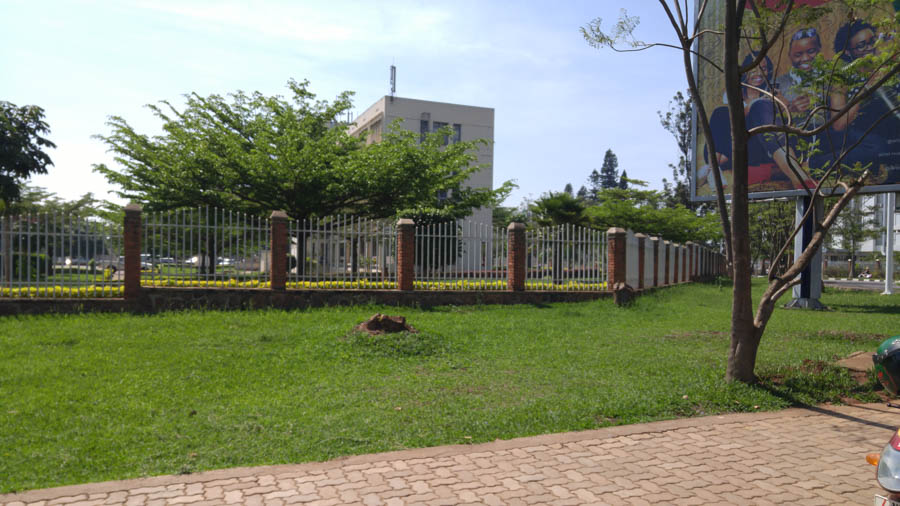
View from the Genocide Museum
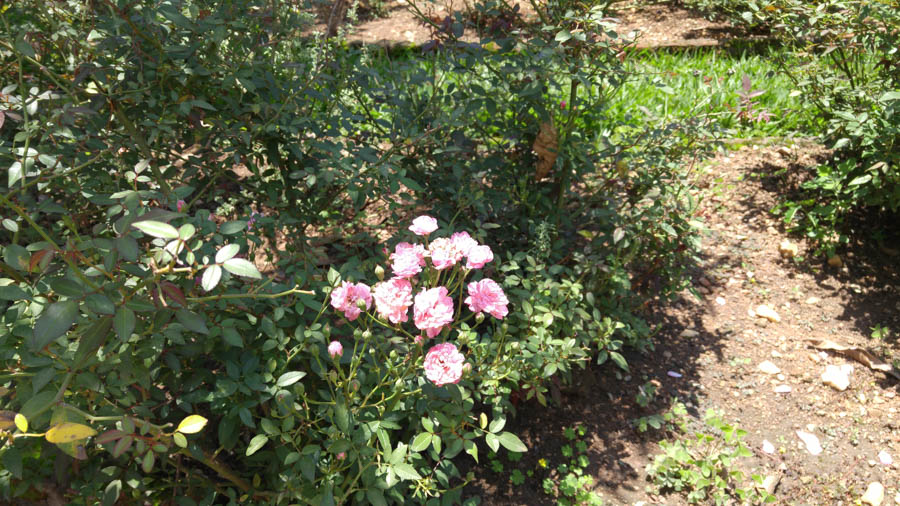
The rose garden at the Genocide Museum is down by the burial
site and the whole place is kind of quiet and
peaceful for the families to come
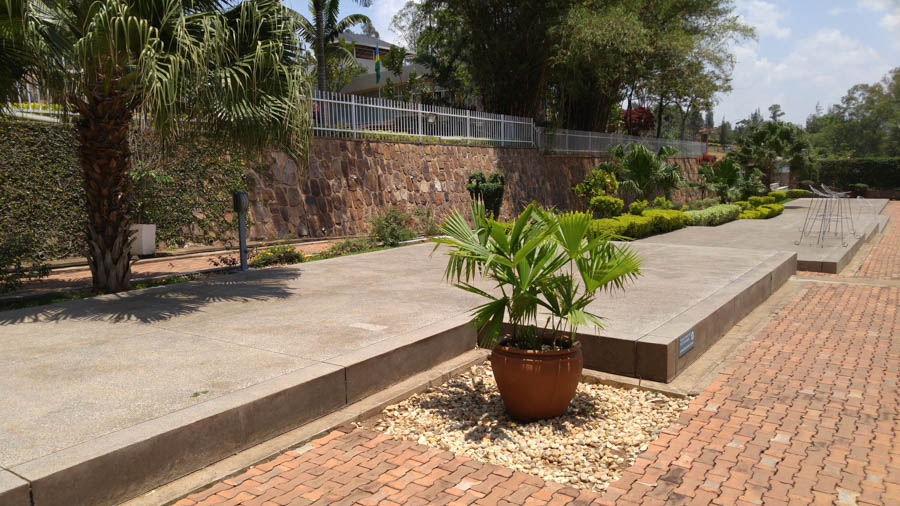
Memories of the slain
Comment - The grave sites - just large areas covered in concrete where the bodies / bones are buried underneath in mass graves. I believe anyone could bring there family here for burial besides those that were also unclaimed. There are actually a number of these burial places throughout Rwanda, but this is the main museum. In the gift shop we actually met a young girl who's whole family had been killed and she had been able to run and escape. Quite moving.

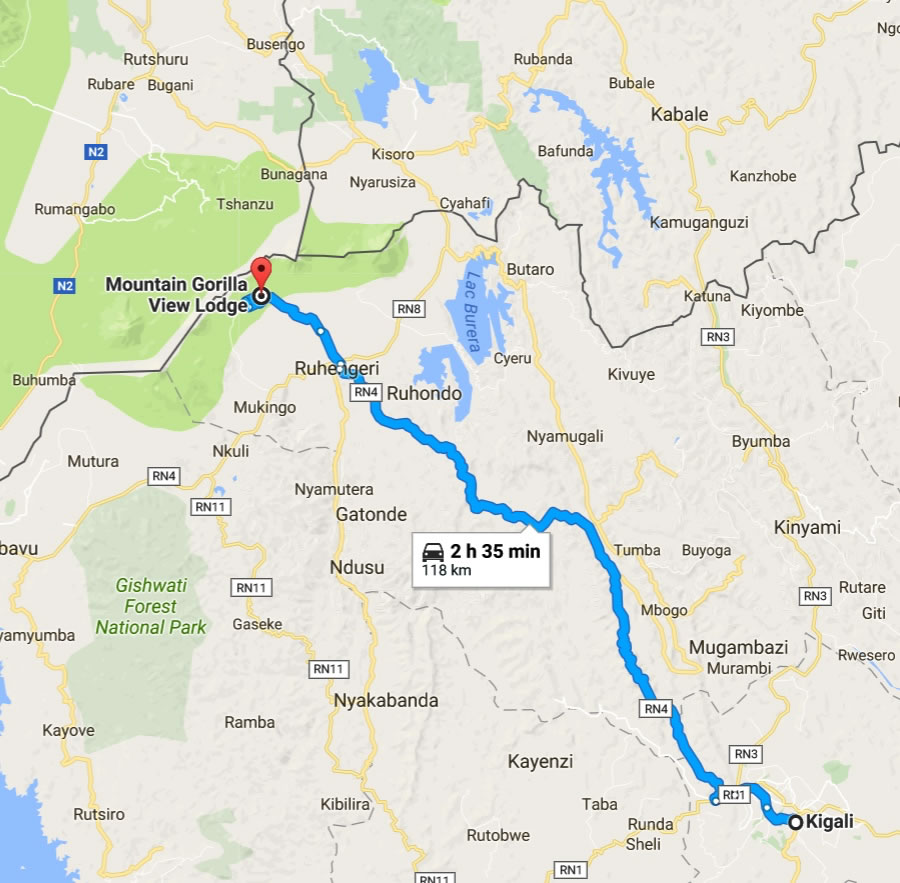
A nice drive where we see some of the town and countryside

The satellite view of the route
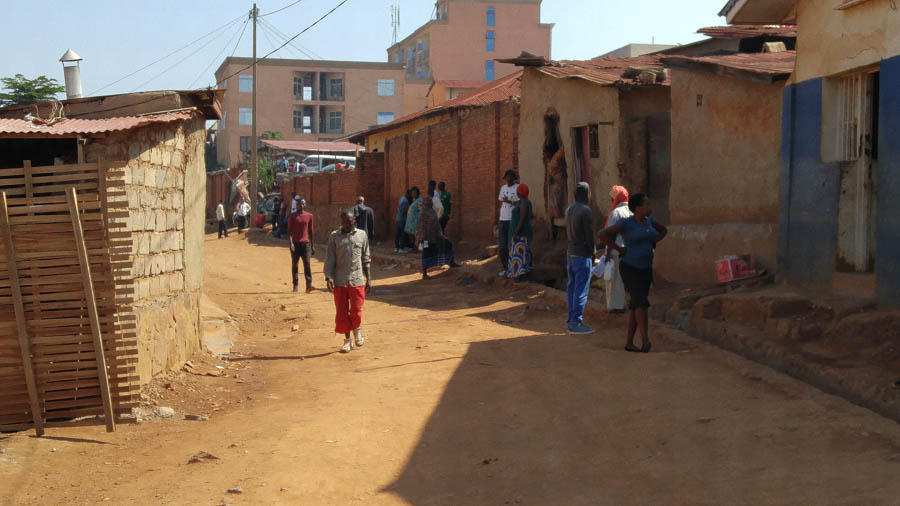
Driving aroundKigali where the common people live
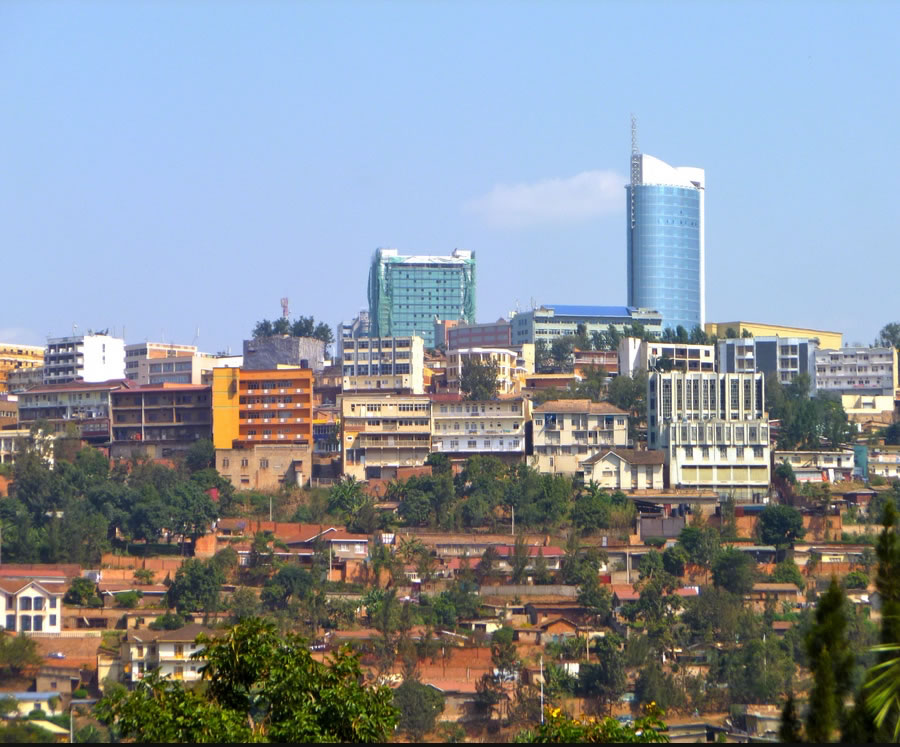
Impressive skyline
built on the hill overlooking the city

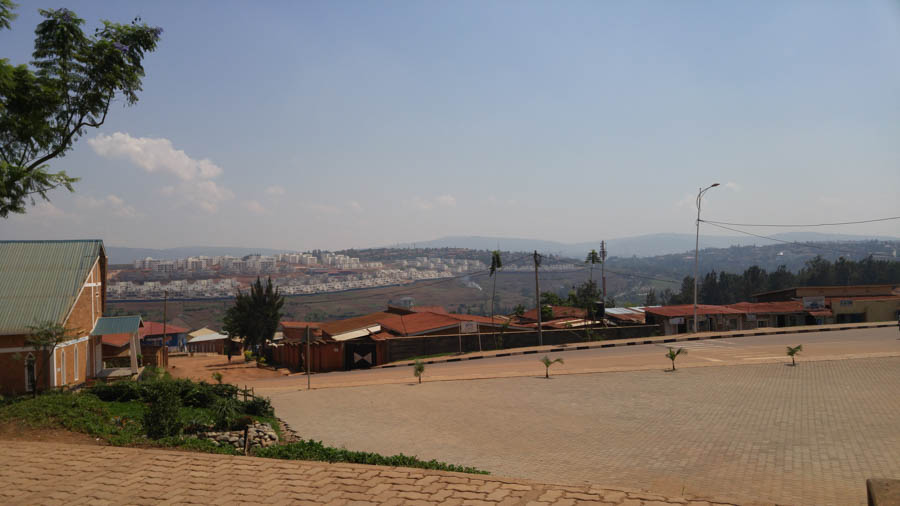
Rolling hills surround the city
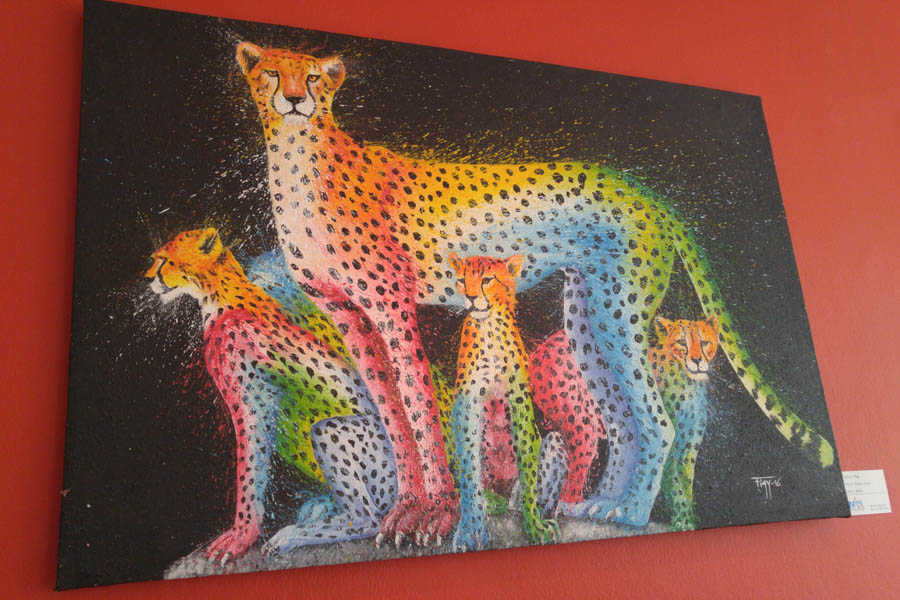
A quick stop reveals artwork for sale
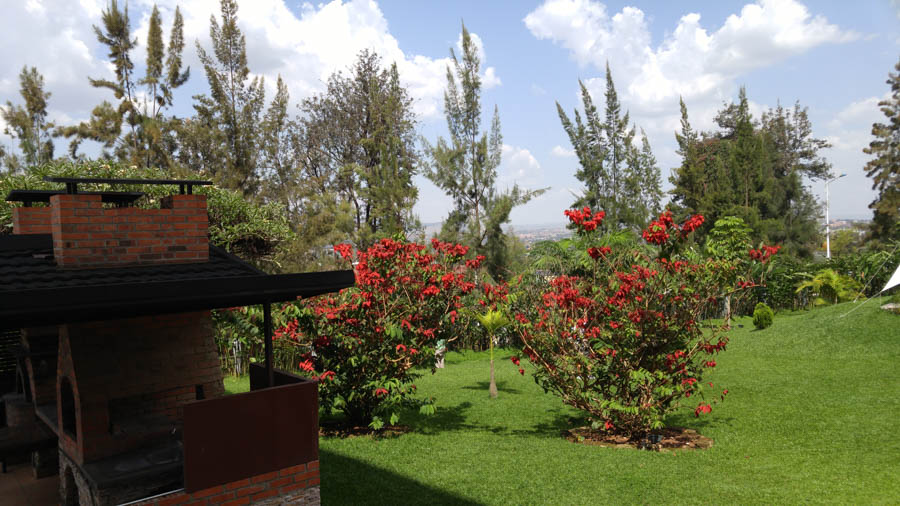
The grounds of the hotels are beautiful

The various hotel grounds were well landscaped
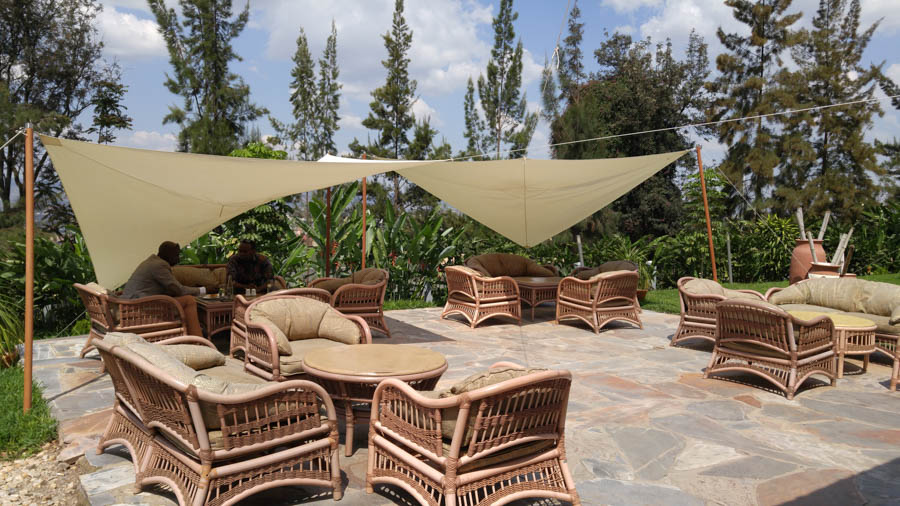
Time for a nap!

We passed by Hôtel des Mille Collines to pick some others up
Did You Know? - The Hôtel des Mille Collines is a large hotel in Kigali, Rwanda. It became famous after 1,268 people took refuge inside the building during the Rwandan Genocide of 1994. The story of the hotel and its manager at that time, Paul Rusesabagina, was used as the basis of the film Hotel Rwanda.
The hotel is the setting for the film Hotel Rwanda, but it does not actually appear in the movie, which was largely shot in South Africa.
The Belgian airline Sabena built the Hôtel des Mille Collines in 1973 and owned it during the Genocide. According to the film, Rusesabagina bribed the Hutu Army with money and alcohol to protect them, and to obtain food and water. The United Nations mission, foreign governments, and the Rwandan Patriotic Front exerted pressure on the Rwandan government forces to ensure the safety of those trapped in the complex.
The four-star hotel has 112 rooms, a bar, a café, three conference rooms, a restaurant, a swimming pool, and tennis courts.

Buses everywhere... Soon we will be out of the city
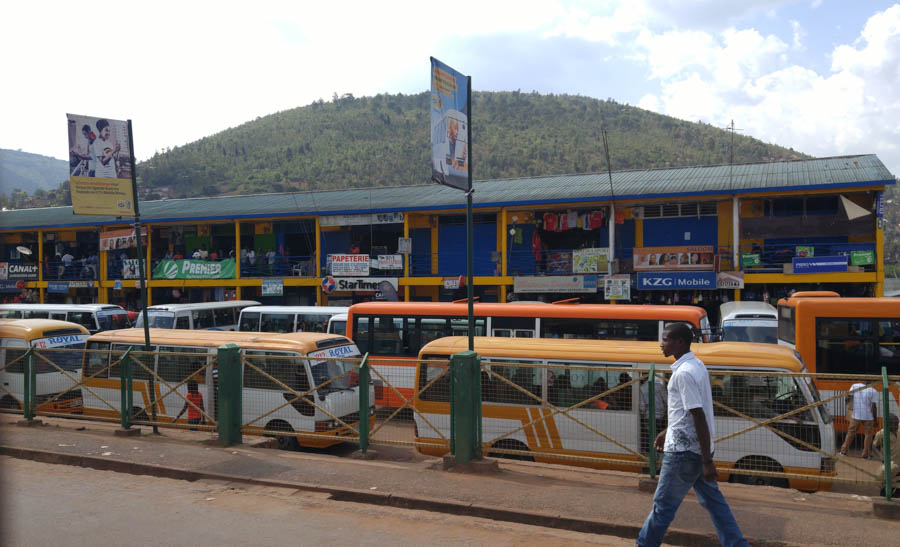
On our way... Looks like LA traffic

On the outskirts of town are the poorer areas

Goodbye city... We stopped to take a look at the city.
The tall building on the left was next to our hotel

Civilization is now gone!

Beauty abounds
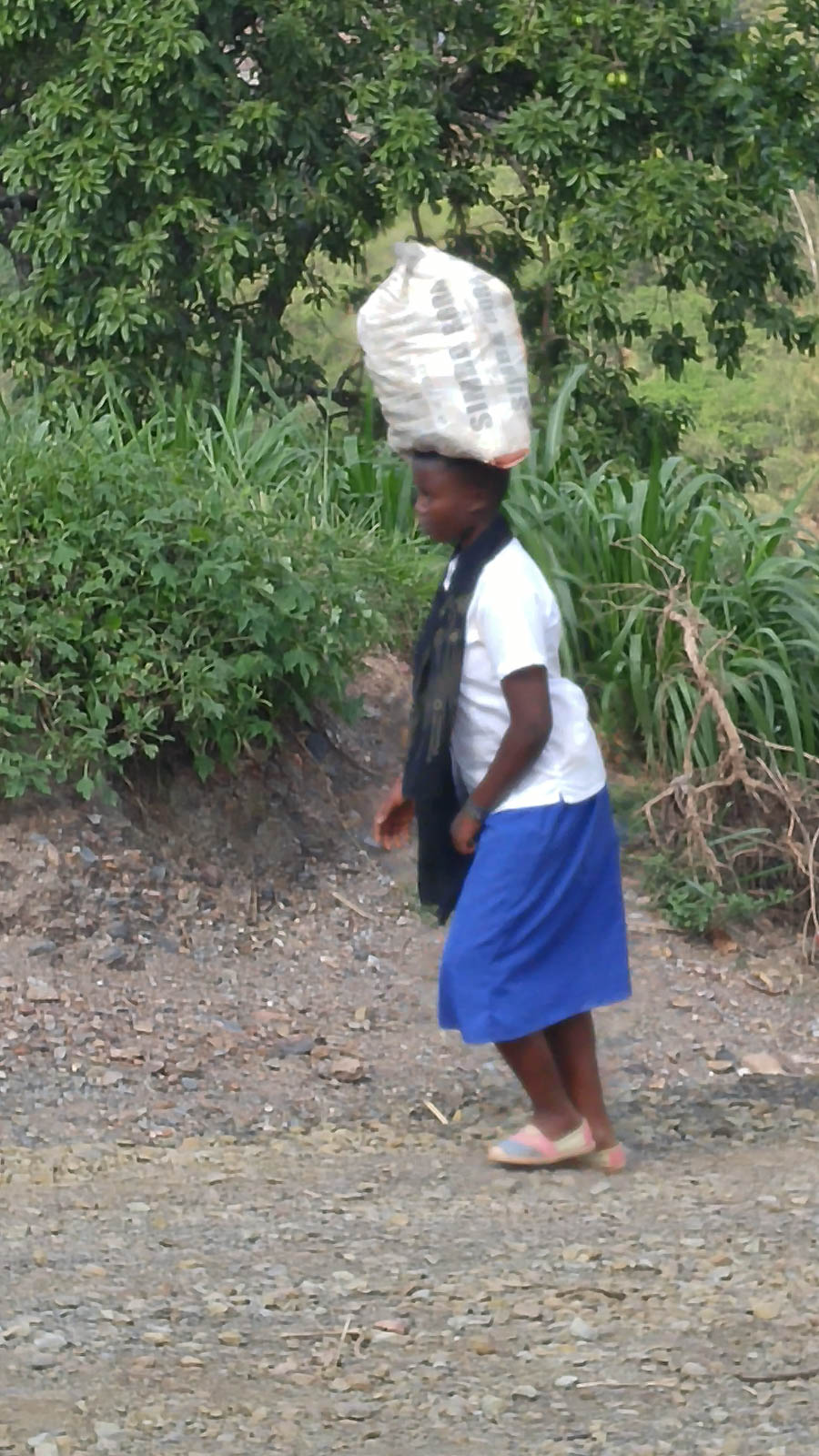
Carrying a load back home
Did You Know? - Carrying on the head is a common practice in many parts of the world, as an alternative to carrying a burden on the back, shoulders, head and so on. People have carried burdens balanced on top of the head since ancient times, usually to do daily work, but sometimes in religious ceremonies or as a feat of skill, such as in certain dances.
Today, women and men may be seen carrying burdens on top of their heads where there is no less expensive, or more efficient, way of transporting workloads. In India, women carry baskets of bricks to workmen on construction sites.
In East Africa, Luo women may carry loads of up to 70% of their own body weight balanced on top of their heads. Women of the Kikuyu tribe carry similar heavy loads, but using a leather strap wrapped around their forehead and the load to secure it while it is carried.
This results in a permanent groove in the forehead of the women. However, there is no evidence of other harmful effects on the health of women who carry heavy loads on top of their heads. Researchers speculate that training from a young age may explain this. Up to 20% of the person's body weight can be carried with no extra exertion of energy.
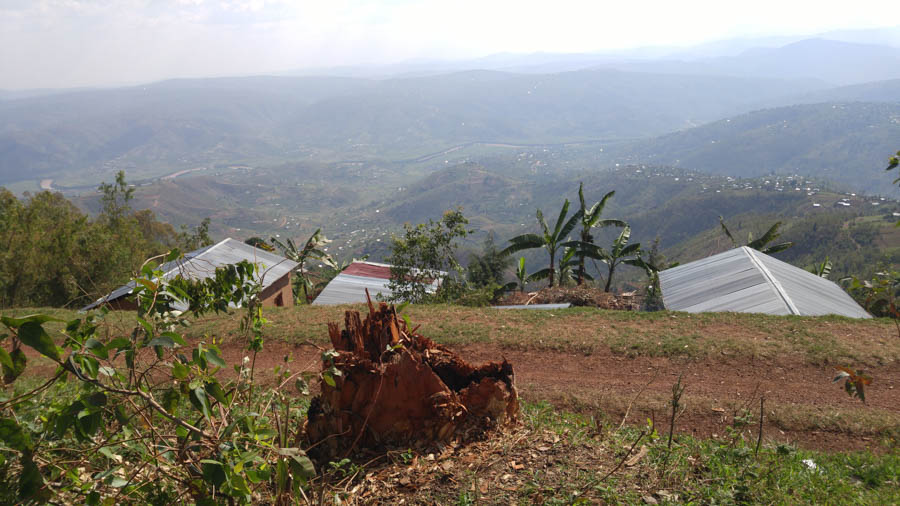
We are going into the higher elevations
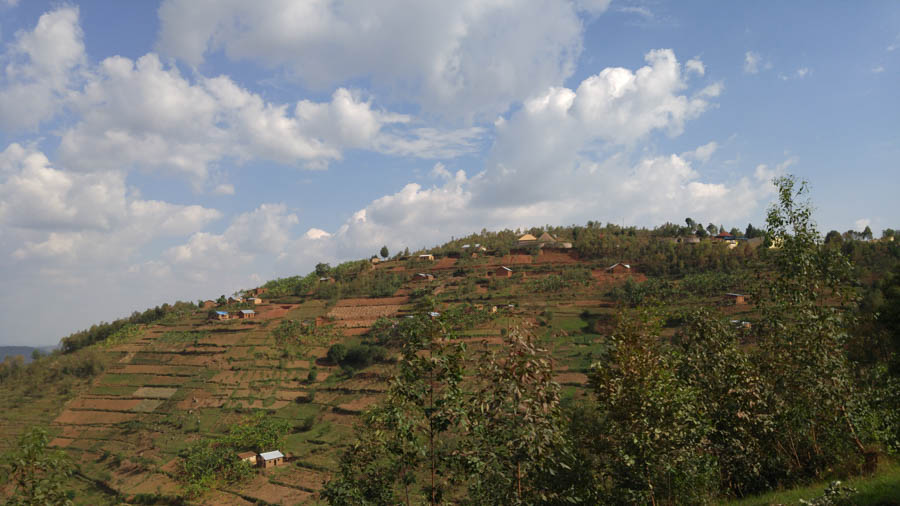
Farms are located everywhere
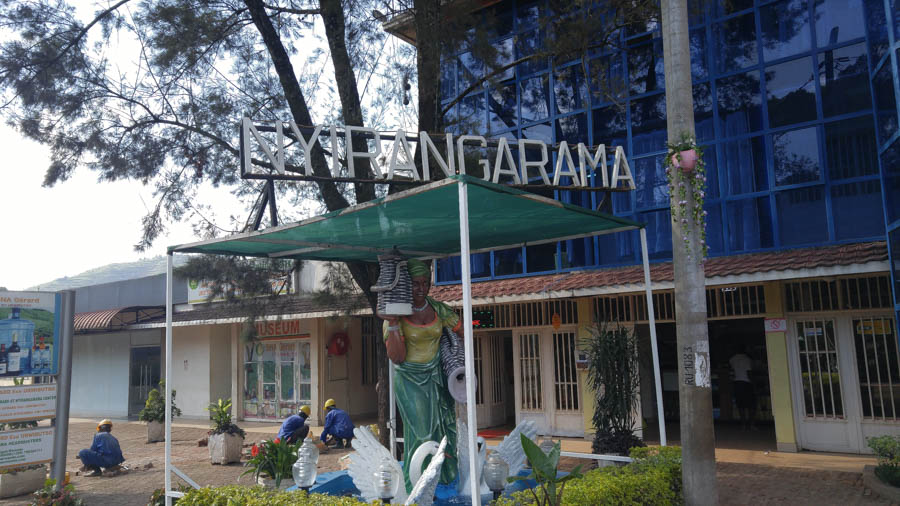
A quick stop in
Nyirangarama, Rulindo, Northern Province, Rwanda
Did You Know? - Its principal town, Tare (more commonly known as Nyirangarama), serves as a rest and refreshment stop for most long distance bus services between Kigali and Gisenyi and Goma. Rulindo district is home to Agashya, Rwanda's leading manufacturer of passion fruit squash.
Rwanda has conducive climate, good soil and altitude for passion fruit growing. The passion fruit is a shallow rooted, woody, perennial and climbs other plants to search for light by means of tendrils. Passion fruit was introduced in Rwanda for commercial juice processing. Rwanda produces passion fruit both for the local and export markets. The country exports fresh purple passion fruits to the European market.
The annual production is estimated at 7,000 MT a year dominated by purple variety.
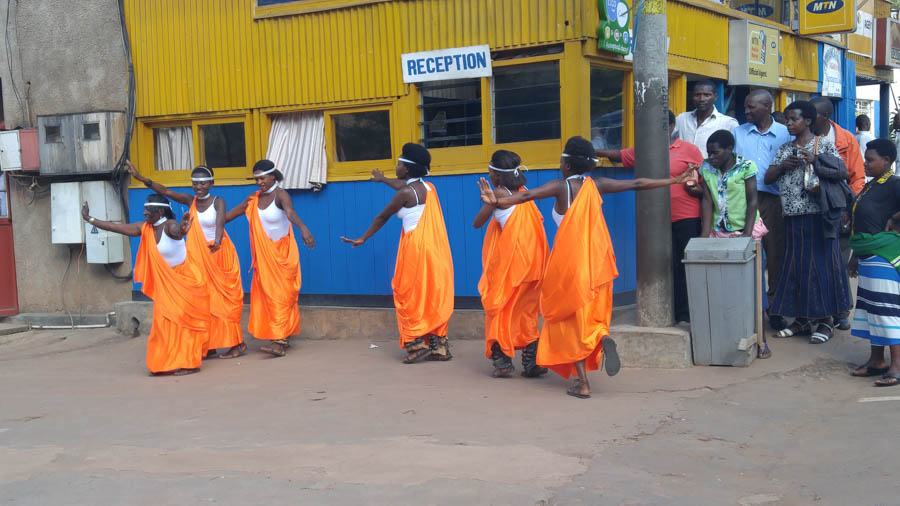
A little entertainment
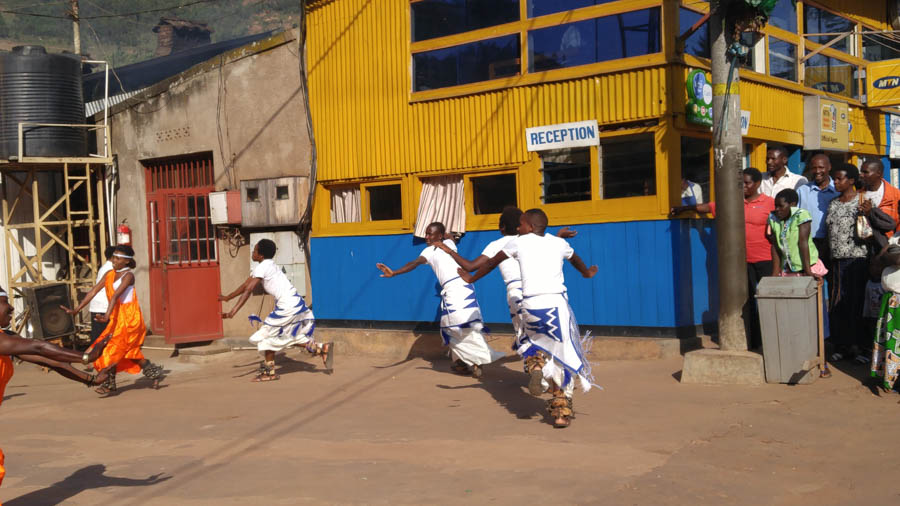
Looks like fun!
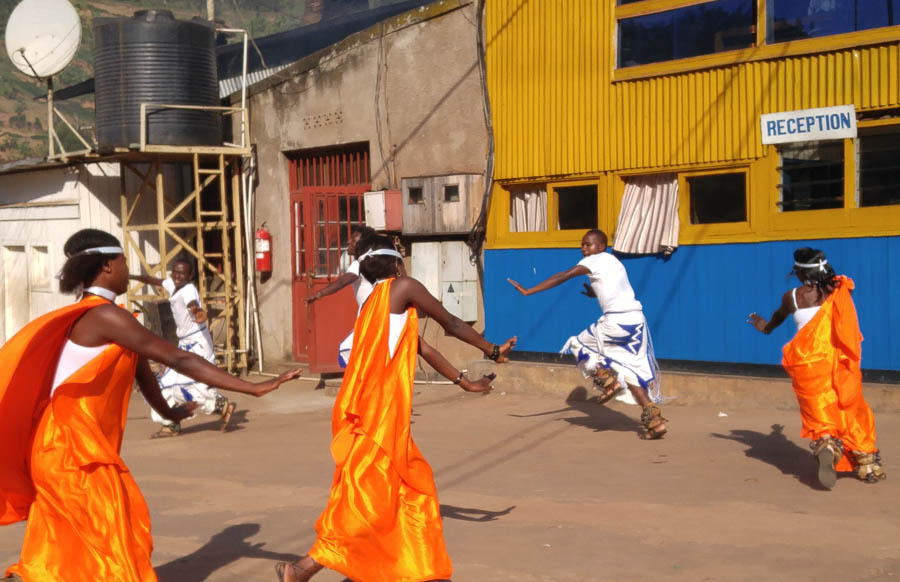
Bright clothes making a statement

...an offering?
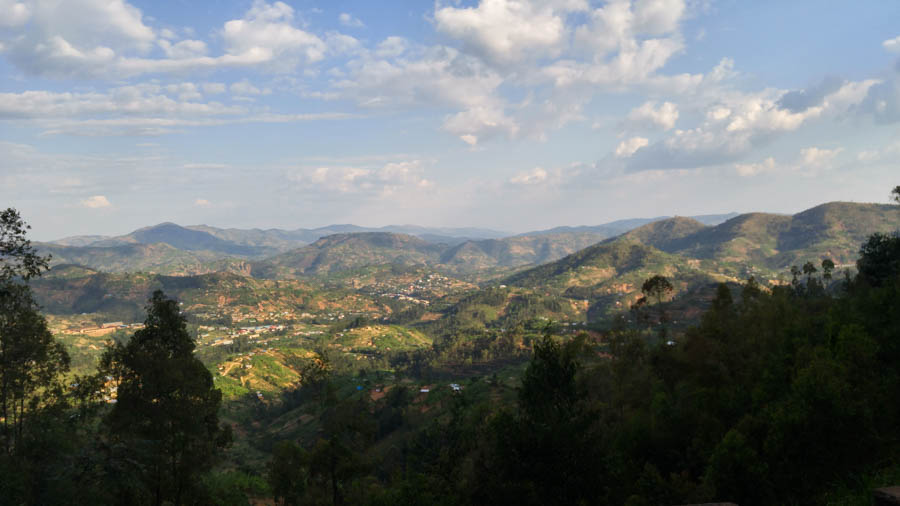
Up and up we go!
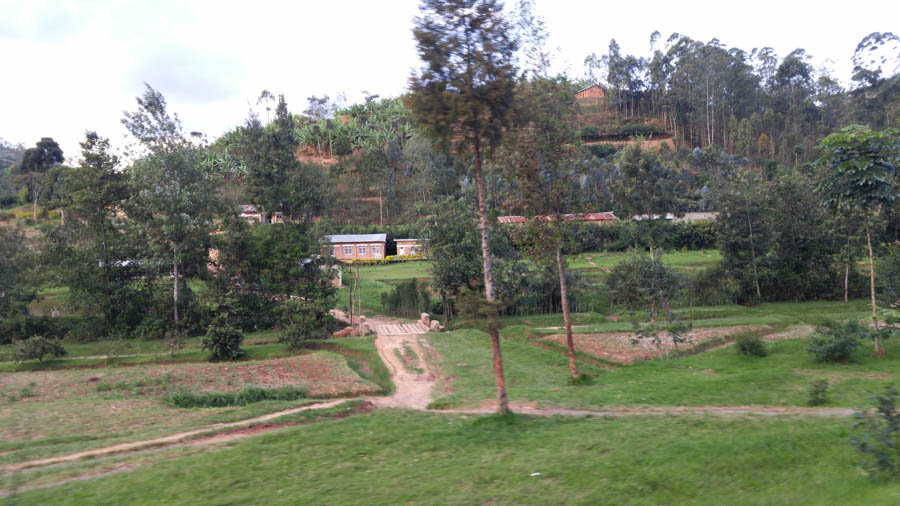
There are some nice homes along the way... Plantations
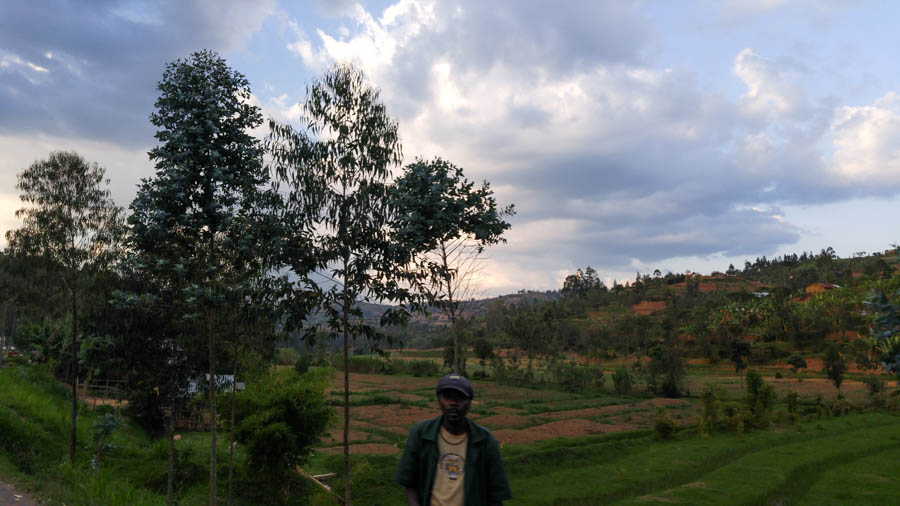
Working the fields

No shortage of water this time of year!
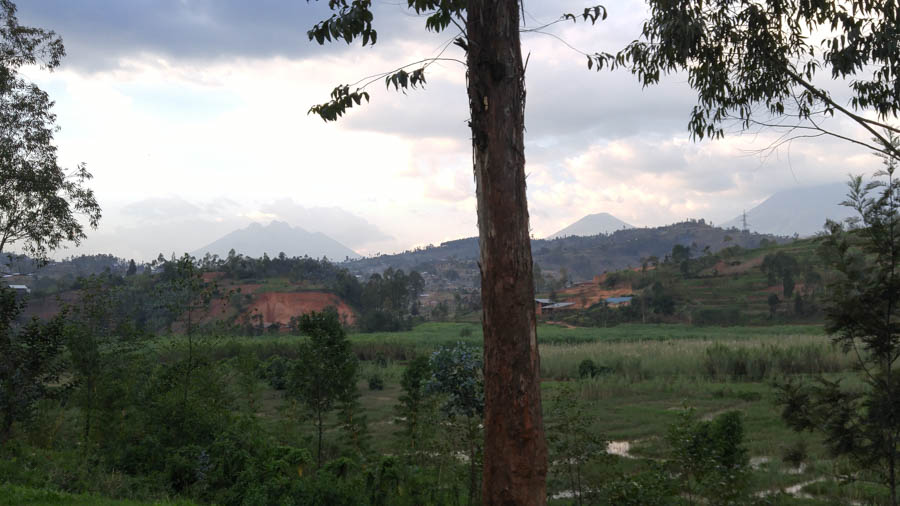
Climbing into the "mountains"
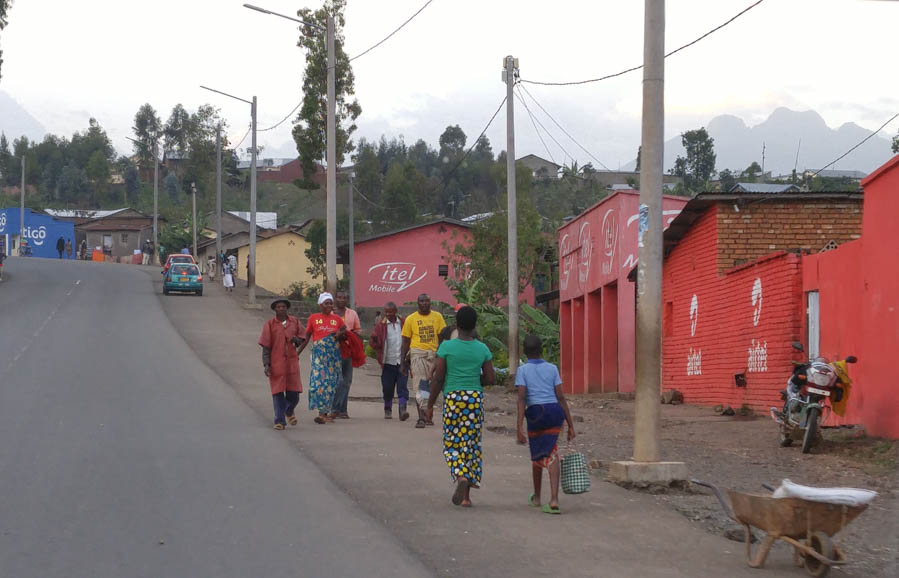
Getting closer to the destination... We slow down through the towns
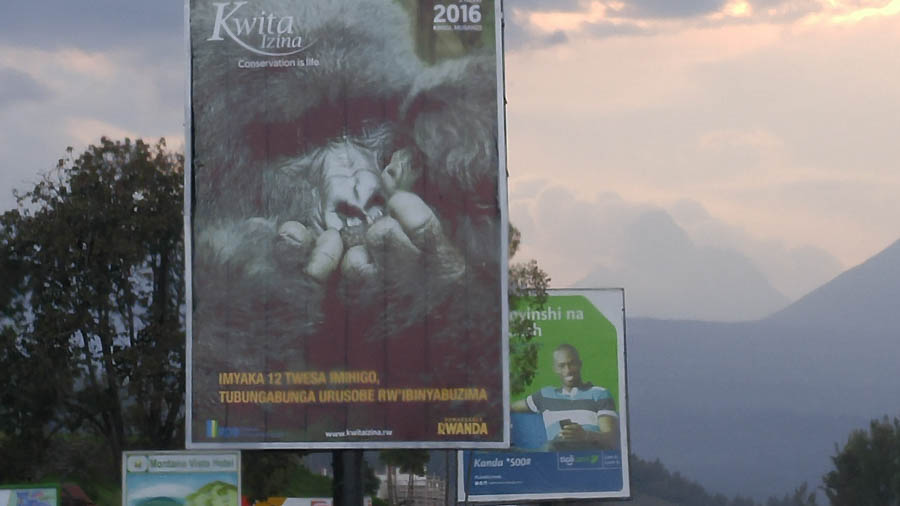
Advertisements along the road
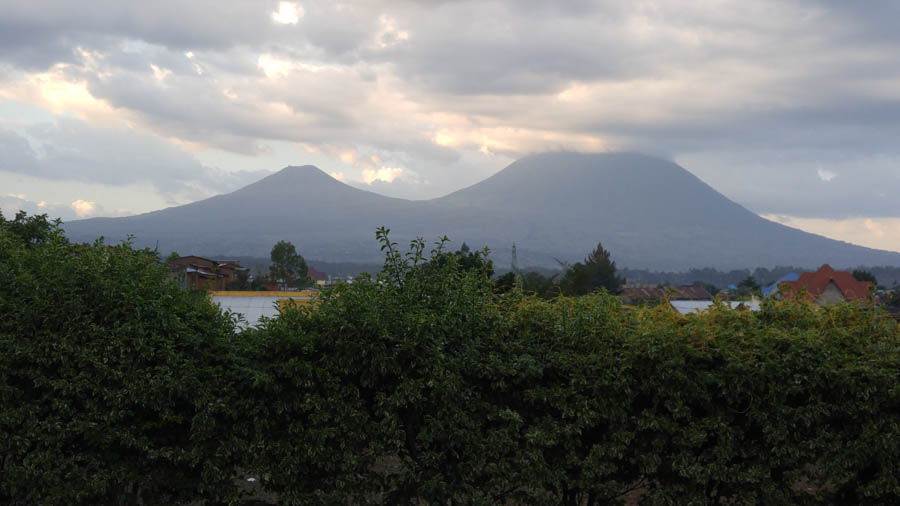
Perhaps some weather ahead? It rains 17 days in
October/November and about four inches!

The bus really scoots along the narrow road
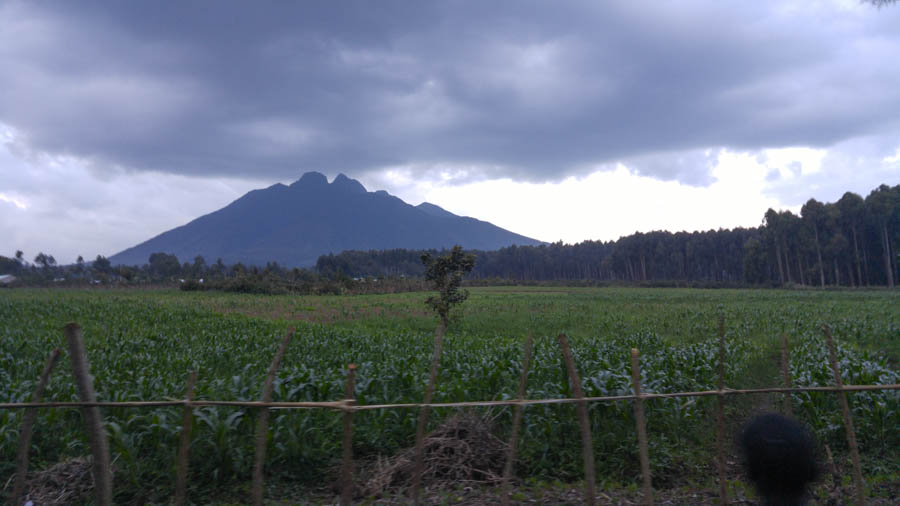
Farms everywhere...
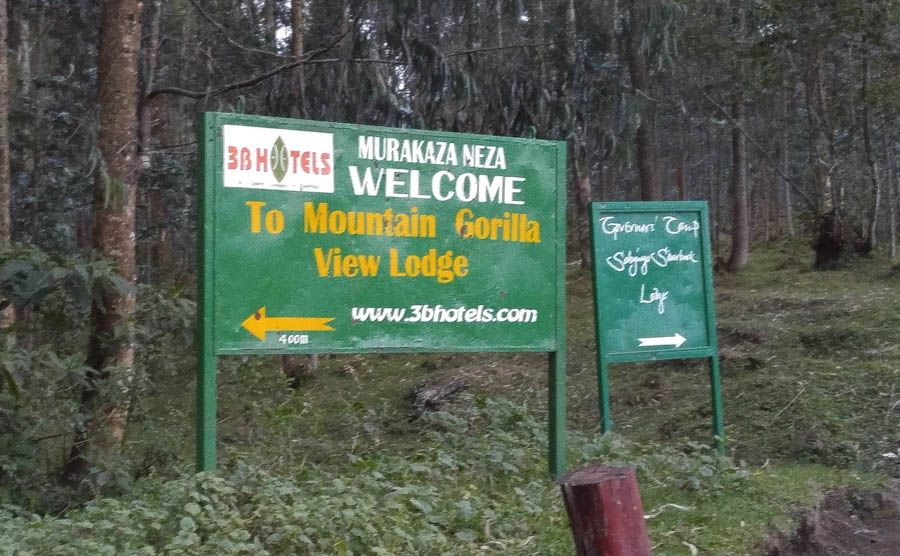
Murakaza Neza translated to
"Welcome to" or "Our doors are open"
The Mountain Gorilla View Lodge is the new mid range accommodation, located only a 15 min. drive from the ranger station at Parc National des Volcans (Volcanoes National Park), where you check in each morning for either gorilla or golden monkey tracking.
The 30 individual cottages are built of stone and thatch on the slopes of Mt Sabinyo. The rooms are big and bare, but each features a small lounge with a fire place and a private veranda.
A major draw-back is that electricity is provided by a generator, which is generally turned on after 6 pm; meaning you only have hot water/heat when power is on.
Wood is provided to burn in the fire place, but you may want to dress warmly anyways. The staff came in and lit our fire every evening (except the last one). Our last morning was cold!

Did You Know? - Remarkably this tiny portion of the planet hosts almost a third of the world's wild mountain gorillas, with around 250 individuals in 10 troops, of which 8 are habituated to the presence of humans, which means that they can usually be approached without being scared off. This rich rainforest environment also contains over 120 mammal and 350 bird species.
Only 56 gorilla tracking permits are issued each day, so you need to book extremely early and pay up front to secure a spot to visit one of the more interesting and accessible gorilla families.

Visit me and the family (Page Three)
